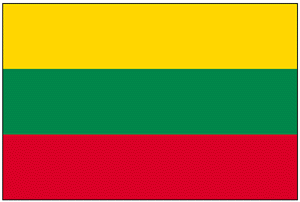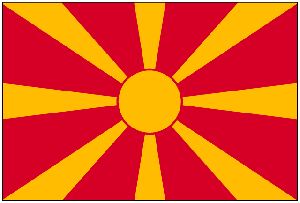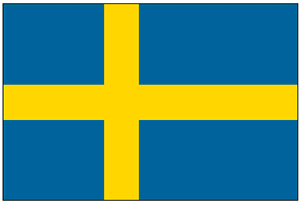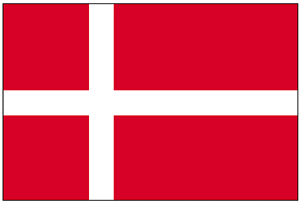 Greece
Greece
 Greece
GreeceThere are different classes in a 'frontistirio'. Pupils start from 'A junior' and most of them continue until they take the exam for the 'First Certificate in English' from the University of Cambridge. Some of them continue in order to get the 'Certificate of Proficiency' from the same university or the University of Michigan. The number of students in a 'frontistirio' class is about 15 pupils and in a school about 25-30. All the skills are taught (reading comprehension, listening, use of English, writing and communication skills), as they are necessary for the First Certificate and Proficiency examinations.
English is taught in a communicative way and most of the times the class works together, as there are not many pupils in a class. Computers, video and tapes are used and pupils are encouraged to speak as much as they can. The lesson takes place mostly in English and Greek is used only to explain grammar and in some cases where the teacher knows that his/her students are not going to understand him/her. But this doesn't happen in every school or 'frontistirio'. It depends on the teacher. In our school we use English mostly and avoid Greek because those 6 hours a week are the only chance where children can speak English. As for listening, they listen to English a lot because of television.
The University of Cambridge awards different certificates of various levels which certify one's knowledge of the English language. The 'First Certificate of English' is the one of the lower level and the 'Certificate of Proficiency in English' is of the advanced level. One can sit the exams for the FCE after having taken courses for about 6-7 years, with a starting age of 8. After having passed the FCE exams, you need 2-3 years preparation for the 'Proficiency', which gives you the opportunity to become a teacher of English. 'A junior' is the first level in the 'frontistirio'. It's the course attented by 8-year-olds. Then they move to 'B junior' (not obligatory), 'A senior', 'B senior', 'C senior', 'Dsenior', 'E senior' and 'FCE class' (preparation for the exams). [Aspasia Stergiopoulou: Thessaloniki]

You might get more information on Greece from the following site: The Information Database on Education Systems in Europe - Greece
The Information Database on Education Systems in Europe - Greece
 Lithuania
LithuaniaWith the independence, our policy makers put the priority towards European languages, i.e. at the end of the 3rd form students (or rather their parents) choose the major foreign language - English, German or French. Since English is the main tool for international communication, it has become the major foreign language taught at Lithuanian schools and universities. Starting with the 6th form students have to study a second foreign language and here the variety of languages is very wide. One can choose Spanish, Italian or even Japanese if the school has a teacher to teach the language.
Students are obliged to take an English (or other major foreign language) exam only when they finish school, at the end of the 12th form. It is the first year that we have such a division of our schools (4-6-2) and the exams are still being discussed; we still do not know whether students will have an English exam after the 10th form. In the previous system students had to take graduation exams (Lithuanian, maths and history) after the 9th form but there was no foreign language exam.
There are schools in Lithuania where students start studying a foreign language in the second form but such schools are usually specialised (like gymnasiums).
Students are required to study English 3 academic hours a week (45 mins. x 3). Starting with the 11th form they have a right to have additional 1-2 academic hours. Our classes usually consist of approximately 24-30 studentsand classes are divided into two groups to learn a foreign language. Therefore, a perfect situation in our schools is when we teach 12-15 students. Sometimes such a division is not possible because there is a lack of English teachers in Lithuania. We often have to teach full classes of 24-30 students. It is sometimes painful to observe a teacher of German teaching 6-8 students when our classes are overcrowded.
Lithuania is presently doing everything to become a member of the European Union and one of the requirements is to equalize our educational systems so that Europe could recognise our school and university certificates (what is presently not done or if done, then very unwillingly). Therefore, teaching English is also oriented towards the standards of the European Unity.[Neringa Paskovskaja: Traku raj.]

You might get more information on Lithuania from the following sites:
 The Information Database on Education Systems in Europe - Lithuania
The Information Database on Education Systems in Europe - Lithuania
 Law on Education
Law on Education
 Macedonia
MacedoniaIn high school, students study English 4 hours a week. The classes are the same size (20-40). Nowadays, they use mostly commercial textbooks (such as "Headway") and teaching is based on the language skills. Grammar is still an important part of teaching English because some of the teachers are used to teaching in the grammar-translation method, but there is a tendency to divert from that and to introduce the communicative approach to teaching grammar. Emphasis is given to listening, reading and writing, whereas speaking is not so emphasized. Most of the teachers use mostly English during classes as a means of communication. English is taught for 4 years in high schools.
Parallel with learning English in the schools is learning it through attending courses in private language schools and language centers. Most students achieve intermediate to upper-intermediate level after they graduate from high school. English is taught at universities as well. [Biljana]

You might get more information on Macedonia from the following sites: Education and Science
Education and Science Facts about Republic of Macedonia - Education
Facts about Republic of Macedonia - Education Education in Macedonia
Education in Macedonia
 Austria
AustriaIn modern-day Austria compulsory schooling lasts nine years. Thefour-year elementary school (ages 6 to 10) is followed by secondary education (in either a "Hauptschule" or the lower classes of an "allgemein bildende höhere Schule"). Pupils who leave school at fourteen and do not intend to pursue further school education can enrol at a Polytechnical Course which prepares them for working life. Apprentices are required to attend a vocational school.
Since 1998 English has been a compulsory subject for elementary school (from 6 to 10), taught twice a week. Communication and verbal comprehension are the core teaching objectives. In a "Hauptschule" or an "Allgemein bildende höhere Schule" (from 10 to 14) students are instructed in all four skills (reading, writing, speaking and listening). There is an emphasis on communicative activities. Students have to take written exams in English six times a year. If there are more than 30 students in a class, the English lesson is divided into two groups taught by twodifferent teachers. There are five lessons a week during the first year. In the second form students learn English four times a week and in the third and fourth forms students have three lessons weekly. Teachers can select from a wide range of excellent textbooks. Complementary tapes are provided (taped with native speakers).
The upper segment of secondary education is covered by a range of school types: "allgemein bildende höhere Schulen" providing a general education with the emphasis either on the arts or on sciences and vocational schools at various levels. A school-leaving certificate acquired at one of the above school types entitles the holder to enrol at university.
During the upper segment of secondary education (from 15 to 18 or 19) the proficiency in the English language reaches advanced level (three lessons per week). British and American literature and current newspaper clippings complement studying English at Austrian schools. Assistant teachers - native speakers mainlyfrom Great Britain - teach at the upper level approximately once a month. Students have to take English for their final written exam (Matura), which enables them to enrol at university. An oral exam in English is optional.
Austria's school system is governed by uniform regulations nationwide. No fees are charged for attendance at state-run schools. School textbooks and travel to and from school are largely free of charge. The education policy currently being implemented is seeking to give schools a wider degree of autonomy. This entails upgrading the responsibilities of the school bodies made up of teachers, pupils and parents in all school types. Since the 1994/95 winter term, study courses have been available at specialised colleges. Graduates receives academic degrees. [Bettina Steinhauser]

You might get more information on Austria from the following sites: The Information Database on Education Systems in Europe - Austria
The Information Database on Education Systems in Europe - Austria Schools Providing General Education
Schools Providing General Education
 Egypt
Egypt
In Egypt, the education system has some categories:
3. Post-higher education level
This level includes writing Ph.D. and MS theses.
In Egypt, students begin to study English at the fourth primary and they study the "Hello! 1" book. In primary five they study "Hello! 2". The "Hello!" series continues till the third prep where they study "Hello! 5". At the secondary school they study the "Excel In English" series ("Excel 1, 2 and 3").
Each of all these curricula helps develop the four teaching skills of listening, speaking, reading and writing. All these curricula in Egypt are national ones for all the students. The Ministry chancellors plan and edit them. Teachers take training for the new books in order to explain them well. As for the exams, we have national ones all over the country for the 5th primary, 3rd preparatory and 2nd and 3rd secondary. [Fathy Moustafa: Ismailia]

You might get more information on Egypt from the following site: Ministry of Education
Ministry of Education
 El Salvador
El SalvadorThe government is changing the curriculum of many subjects and English is one of them. English has been taught two hours per week and now they are going to increase it to three hours per week. There was a kind of disorder in the sense that the government was not demanding the teaching certificate because of the war. Many people were living in the US for many years and then they were deported and got a job as English teachers. They know the language but they don't have the skills to teach the language. They were displacing people that studied English to be teachers for many years.
However, bilingual high schools are forced to hire graduated people but they don't want to do it because they say that the graduated people don't have good grammar and good pronunciation. Meanwhile, bilingual high schools don't treat teachers well (the students and their parents treat them as maids). The problem is that the government is demanding the teaching certificate and only graduated people have it. It is very hard to teach English in an environment like this because you need a kind of discipline when you teach the language, but it is impossible to achieve it especially when you deal with kids that don't care about the language. It is easy to work in the public school but the problem is that if you don't belong to the political party that has the power in the government, it is going to be difficult for a teacher to get a job in a public school. We have free courses in many places such as academies, universities and even private classes in companies. English is so important for us because of our geographical position (we are near the US) and people in the free courses are very enthusiastic in learning English. [Juan Carlos Portillo Flores]

You might get more information on El Salvador from the following site: Escuela Americana
Escuela Americana
 Sweden
SwedenBy the time Swedish youngsters finish their secondary schools and enter high schools, they will have got 6 years of instruction. Around 96% of the students go on to high schools, even though many of them would prefer to get a job. For many students high school is forced upon them. All upper secondary schools mean another 3 years of education. TEFL is divided into courses: A, B and C (the latter is rarely taken by the students and only the first one is mandatory). Generally, the Course A involves about 120 hours of instruction (a 60-minute lesson), even though it is up to the schools how to distribute the teaching time. The focus of TEFL is again on oral communication.
Grammar is taught only for communicative purposes and grammatical accuracy is less important than fluency and self-confidence as a user of English. The overall curriculum is strongly pragmatic in all subjects and the natural assumtion is that "learning should be fun". That's why Latin has been scrapped, and there's no list of works that should be read. Instead, students are required to read some excerpts from great writers, not to mention summaries. We get our students to read a book: abridged versions of "Rebecca" at the Course A for the brightest ones or "The Animal Farm" for the Course B. The syllabus for writing English only mentions "writing letters, both formal and informal"
Lastly, the following are considered to be the problems for teachers at high schools.
-low student motivation
-mixed ability classes
-too little time
-too vague syllabus meant to ensure that every student can manage it and get a passing grade
-no resources for brighter students who are often left unattended to
-classes of between 17 (vocational profiles) and 30 and up for academic profiles
-poor writing skills
-mother tongue interference
-students tend to use informal English only [Martina]

You might get more information on Sweden from the following sites: The Information Database on Education Systems in Europe - Sweden
The Information Database on Education Systems in Europe - Sweden ESTIA in Sweden - Education
ESTIA in Sweden - Education The National Agency for Education
The National Agency for Education
 Oman
OmanThe students, who are about to enter the sole university (SQU) or any other colleges in the country, must take a proficiency test before getting their BA/BSC degree. The problem with our students who are currently in the university is that they don't have sufficient knowledge of the English language that enables them to go for their studies in the university in a very good manner. This defect has come from the previous educational system, which is now replaced by a new and more effective one. The product of the latter one has not shown up till now but hopefully it will be up to our high expectations.
As far as my knowledge is concerned, the English Language Curriculum has been changed more than three times until now since our glorious renaissance started in 1970. At the beginning of the educational process in the country, we borrowed some of the English language courses taught in other countries such as Kuwait, Qatar, Egypt and some others. However, all the materials currently taught at schools are home made and mostly directed towards the students' needs and are written by very professional experts. [Ali Hussain]

You might get more information on Oman from the following site: Sultan Qaboos University - College of Education
Sultan Qaboos University - College of Education
 Morocco
MoroccoThe methodology adopted is that of communicative language teaching with the hope of creating a certain balance between fluency and accuracy. The four skills are taught integratively, although there is more emphasis on reading. The purpose is to prepare students for the standardised tests that students take at intervals (6 times) during the three years of the senior high school period.
All the courses are, including the ones for beginners, are conducted in English. No translation or use of the mother tongue are allowed. Almost all the teachers are Moroccan. [Abdellatif Zoubair]

You might get more information on Morocco from the following site: Education
Education
 Jordan
JordanThere is also an anthology course (three periods a week). Advanced English is an optional specialized course emphasizing language translation and literature, which is alloted five periods a week. At the end of the secondary education stage, all students sit a national General Certificate of Secondary Education test which is run by the Ministry of Education.
In general, there is wide belief in Jordan that students are weak in English. But we are undergoing a reform project that is expected to promote the EFL situation and all other subjects. [Turki Diab]

You might get more information on Jordan from the following site: Ministry of Education
Ministry of Education
 Denmark
DenmarkNo matter what kind of education you choose, English is a very important language to be able to communicate in. Every firm and company expects their workers to be able to work outside the country. Denmark is a very small country (5,000,000 inhabitants) and even though we have a history going almost 2,000 years back, we cannot expect to manage only with the Danish language. English is the first foreign language the pupils get to know, but in the 7th grade they have to choose French or German as the second foreign language. In high school they have got to have another foreign language. They can choose among French, German (the one they didn't choose in the 7th grade), Spanish and Russian (not very many choose Russian). So you can see that language teaching is a very important issue in the Danish school system maybe because we are a small country, but the Danish language is still very important in the schools. [Else Bogh]

You might get more information on Denmark from the following sites:
 The Information Database on Education Systems in Europe - Denmark
The Information Database on Education Systems in Europe - Denmark
 Danish Ministry of Education
Danish Ministry of Education
 Iran
IranIn high school, the students are required to study English threehours a week and the number of students in one class is about 40. Compared to other countries, high school English is more grammar based and the teachers put more stress on teaching grammar rather than on teaching reading comprehension and communicative skills.
Needless to say, there are many factors that mainly contribute to students' lack of interest. If we go deep in the history of learning English in Iran, we would come up with something like these:
1. Students' ignorance of aims and goals of learning a new language and its advantages
2. Unqualified teachers without teaching abilities
3. Old methods and styles of teaching
4. Differences in cultures and looks
5. Old, unoriginal and out of date resources
6. Lack of audiovisual facilities
7. Lazy classes
8. A kind of protest against foreign languages
9. Lack of native speakers who have a good command of English
10. No TV programs or satellite channels to watch in English
11. Forgetting the language in a short time after graduating
12. No prospect or usage for learners of foreign languages in Iran
13. ....
As you see, there are many reasons that result in Iranian backwardness of learning English language. Intermediate students in high school should compensate for all shortages by the Entrance Examination before they are admitted to university. The expected score for English language is the same for math or chemistry. Although among approximately 1,400,000 applicantsonly 140,000 will be admitted, students usually ignore the English test but pass it eventually. The same story continues at universities. English language is thought something in the background. Except English students, others take 2 or 4 credits for the whole four academic years. [Zia Musawi M]

You might get more information on Iran from the following site: Education System in Iran
Education System in Iran
 Guatemala
GuatemalaThere is not an examination, like the one students take in Japan. Here to get into College, English is not a requirement if you wish to study in the public USAC. However, things are different in private universities. In those universities, a certain level of English is required and that depends on what you're studying. Some universities require the TOEFL test with a minimun of 500 points for the students to be able to graduate from the university. They, as a graduation requirement, ask their students to take the TOEFL, plus a certain average in their scores and/or certain credits.
Most of the TEFL is done in private schools. In Guatemala city there are a lot of those schools. The way English is taught varies from school to school. There is a minimun level of English knowledge that is required by the curricula, but some schools stick strictly to that and others give a lot more. The schools I've worked in are private and they are called "Bilingual" Schools. Some schools use the word 'bilingual' to provide a very good and extensive program, both in English and Spanish. Good schools provide half the school day in English subjects and the other half in Spanish subjects. The subjects mostly taught are Language, Mathematics, Social Studies and Science. There are a lot of schools that use 'bilingual' to explain the high rates they charge, but the English they teach is very poor.
Here in Guatemala, the leading place for teaching and learning English is IGA that stands for Instituto Guatemalteco Americano. It's been around for about 50 years or so. At IGA the communicative approach is mostly used. A lot of the class period time is spent on the application of the structures that were introduced to the students before. Right now IGA has a service where they counsel private schools on the TEFL using their methodology. Of course, this service is paid for and that increases the amount of money parents have to pay monthly.
The teaching methodology that is used in each school varies from teacher to teacher and from school to school. One of the advantages that students have in this country is that the USA is very close. There is a lot of American influence in this country. When you go to the movies you can hear the actors speaking English and read the Spanish subtitles. There are radios with music sung in English. English literature is a little bit more difficult to find. There are two city newspapers that publish English weekly editions that are distributed for free. [Mildred Lorena Ruiz: Guatemala City]

You might get more information on Guatemala from the following site: Yum Kax High School Program
Yum Kax High School Program
 Tunisia
TunisiaIn secondary education, English is taught 3 hours a week through the same teaching approach earlier mentioned. However, teachers face difficulties in carrying out communicative methods due to lack of laboratory facilities. Secondary education lasts 4 years to end with a prominent national exam: the Baccalaureate. English is a compulsory subject in this exam and generally comprises reading, language and writing tests. At this step, an average level student can manage a casual conversation.
At higher education, English is gradually gaining more and more interest. The educational authorities are allowing more study time for English classes and recruiting more ESP teachers for colleges of sciences. [Frej Alaya: Monastir]

You might get more information on Tunisia from the following site: The British Council
The British Council
 An overview of the TEFL situation in various countries (continued)
An overview of the TEFL situation in various countries (continued)